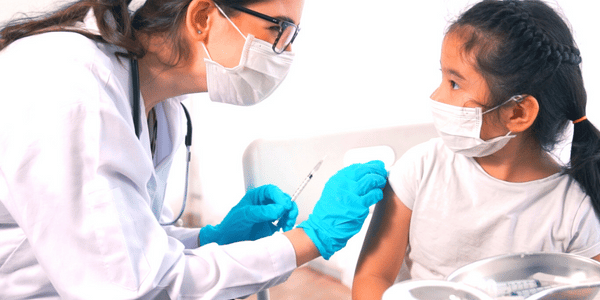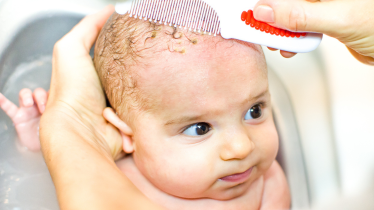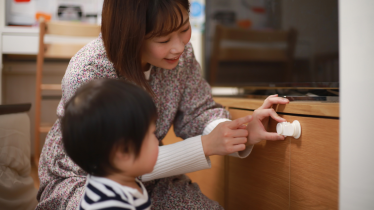As parents, we want nothing but the best for our children. We want to provide them with a safe and nurturing home environment, the best education, and access to the best healthcare. One important way we can help protect our children is by ensuring they receive childhood vaccinations. But many parents have important questions or mixed feelings about their kids and vaccinations.
In this blog, we will explore common hesitations around childhood vaccinations and provide information about why immunizing your child is so important. We hope this blog will help parents make an informed decision about vaccinating their children and provide peace of mind that they are doing what is best for their little ones.
What Are Childhood Immunizations, And How Do They Work?
Immunizations are vaccinations that help protect children from diseases. How? Immunizations work by injecting a person with a “dead” or “modified” form of the virus. As that person’s immune system fights off the virus, the immune system is also preparing to fight the disease if it ever comes in contact with it later in life.
This is why immunizations are given in a series over time. It takes multiple virus exposures for the immune system to become prepared. Vaccinations are important because they can help protect your child from diseases like measles, chickenpox, and whooping cough.
Common Hesitations About Kids and Vaccinations
One of the most common hesitations about vaccinating children is a fear of side effects. It’s important to understand that any medication, including vaccines, can have side effects. However, the risks posed by not vaccinating children are much greater than the risks posed by any potential side effects of vaccination.
Another common concern is that vaccinating children will interfere with their natural immunity. However, vaccines work by exposing children to very small amounts of the viruses or bacteria they are being vaccinated against. This exposure helps their immune system build up immunity in a controlled way, without them having to get sick.
Some parents also wonder if they can trust vaccine manufacturers. It’s important to know that all vaccines in the United States are heavily regulated by the Food and Drug Administration (FDA). Vaccine manufacturers must meet high standards and remain closely monitored for quality and safety.

What Vaccines Does Your Child Need?
Most vaccines are administered in a series of doses over time, so it’s important to follow the recommended schedule. Immunizations protect your child from diseases that can cause serious illness or even death.
The Centers for Disease Control and Prevention (CDC) recommends that all children receive the following vaccines:
- DTaP: Diphtheria, tetanus, and pertussis (whooping cough) vaccine
- Hib: Haemophilus influenza type b vaccine
- IPV: Inactivated polio vaccine
- MMR: Measles, mumps, rubella (German measles) vaccine
- Var: Varicella (chickenpox) vaccine
- PCV13: Pneumococcal conjugate vaccine
- HPV: Human papillomavirus vaccine
Some parents may choose to delay some or all of these vaccines. However, it’s important to talk to your pediatrician to create a vaccination schedule that’s best for your child.
Reasons to Vaccinate Your Child
There are many reasons to immunize your child. One of the most important reasons is that vaccines can help protect children from a number of dangerous diseases. Vaccines are safe and effective, and they can save lives. Immunizations are also one of the most cost-effective ways to prevent disease.
Vaccines are important for both individual and public health. They help protect people who cannot be vaccinated for medical reasons, such as cancer patients or those receiving radiation therapy. Vaccines also help protect people who cannot be vaccinated because they are too young or have a weakened immune system.
Protection from serious diseases is not only important for children but for adults as well. Vaccines can help prevent outbreaks of disease, which can have a serious impact on the community. Jabs are one of the most cost-effective ways to prevent disease and protect public health.
FAQs About Childhood Immunizations
It’s usual for parents to have questions about childhood immunizations. After all, you’re making an important decision that will directly impact the health of your child. Here are the most commonly asked questions/hesitations about vaccinations and kids and our answers.
Q: Aren’t child immunizations dangerous?
A: Immunizations remain very safe and billions of children worldwide have received them. Almost all side effects from immunizations are mild, such as a fever or rash. Severe side effects, such as seizures, are very rare.
Q: Aren’t child immunizations unnecessary?
A: Vaccines have saved more lives than any other medical intervention in history. In the United States, immunizations have prevented an estimated 322 million illnesses and 732,000 deaths since 1963.
Q: Doesn’t my child’s immune system naturally get stronger by fighting off disease?
A: Natural infection does not always result in immunity and may cause serious illness or death. For example, only about 50% of people who get measles will develop immunity. Vaccination not only protects the individual but also helps protect those who are unable to get jabbed, such as newborns and those with compromised immune systems.
Learn More About Kids and Vaccinations
Immunizing your child is one of the most important things you can do to protect them from dangerous diseases. By inoculating your child, you are helping to create a herd immunity that will help protect your child and other children as well. Vaccinations are important and safe and should be a part of every child’s healthcare routine.
If you’re on the fence about vaccinating your children, please know that the staff at Medical Health Associates of WNY is here to help answer any questions or concerns you may have. We want what’s best for you and your family, and we’ll make sure you have all the information you need to make a wise decision. Contact us today to learn more.












